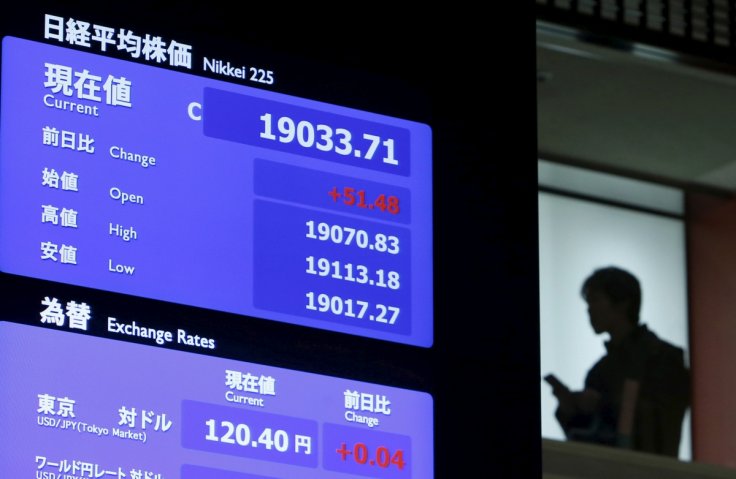
Asian stocks inched up to five-week highs on Friday, after Chairman Jerome Powell reiterated the Federal Reserve will be patient about raising interest rates and news that trade talks between Washington and Beijing are moving to higher levels.
As the Fed's dovish stance kept a lid on the dollar, China's yuan rose to its highest levels in more than five months and was on course for its biggest weekly gains since the 2005 revaluation in onshore trade.
MSCI's broadest index of Asia-Pacific shares outside Japan gained 0.2 percent to the highest levels since Dec. 6, while Japan's benchmark Nikkei advanced 0.7 percent. Shanghai Composite Index initially rose 0.8 percent, but that was pared to just 0.1 percent.
Wall Street extended its rally into a fifth straight day on Thursday in a whipsaw trading session as investors responded to mixed comments by Powell, while a warning from Macy's pummelled retail stocks.
At the Economic Club of Washington, Powell reiterated the views of other policymakers that the Fed would be patient about interest rate hikes.
Major U.S. stock indexes also quickly recovered from brief losses after Powell said that the Fed's balance sheet would be "substantially smaller".
"The word 'patient' is used often when the Fed's policy direction is still tightening but its next rate hike can wait for a considerable time. So risk assets now enjoy support from what we can call Powell put," said Tomoaki Shishido, economist at Nomura Securities.
"Similarly, Trump also softened his stance on China after sharp falls in stock prices. He has offered an olive branch to China and there's no reason China would not want to accept it," he said.
U.S. and Chinese officials are working on arrangements for higher-level trade talks after mid-level officials this week discussed U.S. demands that would require structural change in China to address issues such as IP theft, forced technology transfers and other non-tariff barriers.
U.S. Treasury Secretary Steven Mnuchin said late on Thursday that Chinese Vice Premier Liu He will "most likely" visit Washington later in January for trade talks.
"For markets the upshot is that the outlook for 2019 is looking better as tensions de-escalate, creating the potential for a re-rating of risk assets as the tail risk of a near-term trade war is partially priced out," said Jeremy Lawson, chief economist at Aberdeen Standard Investments in Edinburgh.
"This is especially the case in Asia," he added.
Still, fundamental tensions between the U.S. and China "are unlikely to go away and there is a high likelihood that any agreement to suspend tariffs eventually breaks down when it becomes clear that Trump's objectives cannot really be met."
Some investors are also increasingly wary of lingering disputes in Washington over a wall Trump wants on the U.S.-Mexico border, which has led to a weeks-long partial government shutdown.
Flanked by border agents who are going without paychecks during the shutdown, Trump again threatened on Thursday to declare a national emergency to bypass Congress to fund a wall.
In the foreign exchange markets, the dollar was broadly soft after a small rebound from three-month lows the previous day.
The dollar index, measuring it against major peers, dipped 0.1 percent to 95.38.
The euro firmed 0.2 percent to $1.1523, while the dollar dipped 0.1 percent to 108.28 yen .
The yuan, both onshore and offshore, climbed to the highest levels since late July, aided by a weaker dollar and rising hopes of progress in the U.S.-China talks.
In onshore trade, the Chinese currency has risen 1.6 percent this week, the biggest gain since July 2005 when Beijing abandoned the yuan's peg to the dollar.
U.S. Treasury debt prices erased early gains after a soft 30-year bond auction and in reaction to Powell's comments on the Fed "substantially" reducing the size of its balance sheet.
The 10-year U.S. Treasuries yield last stood at 2.728 percent .
Crude prices held near one-month highs, but a more than week-long in oil rally slowed as optimism surrounding U.S.-China trade talks faded a little.
In Asian trade, West Texas Intermediate crude futures slipped 0.6 percent to $52.30 per barrel.








